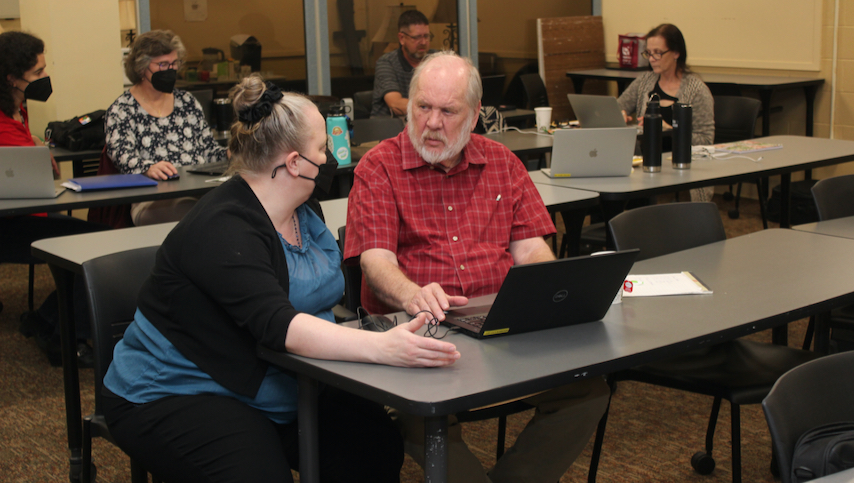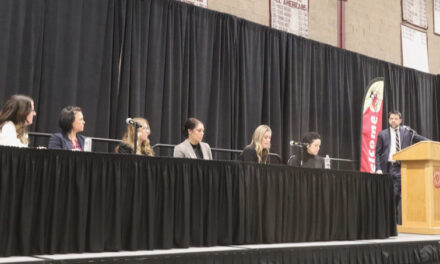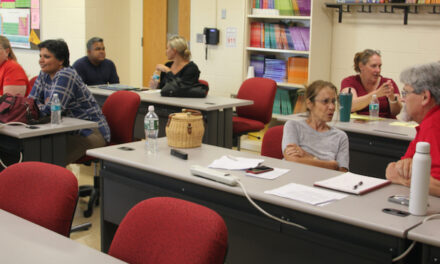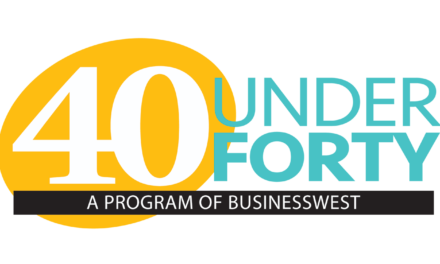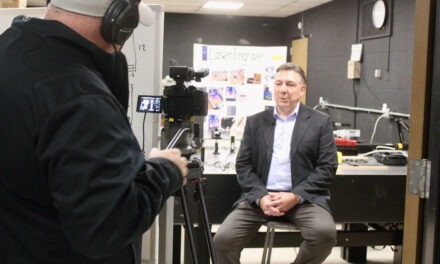Springfield Technical Community College joined in an effort to remove barriers and improve accessibility with Blackboard Ally “Fix Your Content Day” on May 19.
The initiative was part of the 11th annual Global Accessibility Awareness Day. From 9 a.m. to 2 p.m., instructional designers were on hand to help faculty fix as many accessibility issues with course files as they could. They offered faculty an in-person or Zoom option to participate.
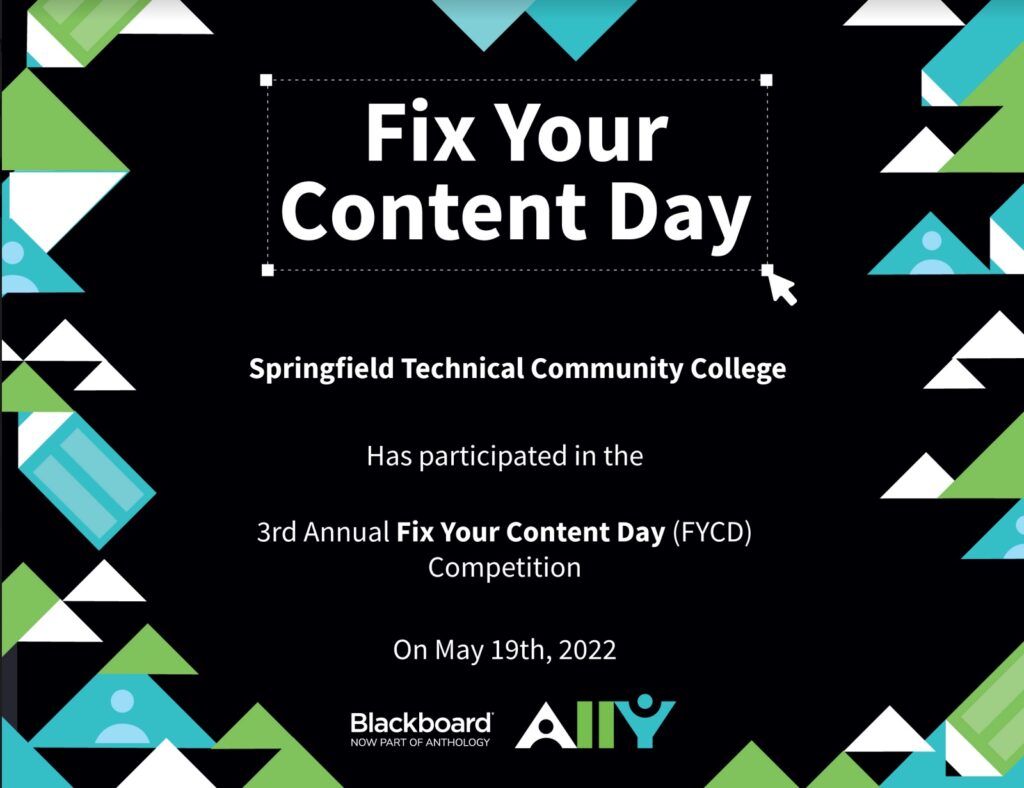
It was STCC’s first time participating in the global event.
“This is a day to prioritize accessibility and inclusion in Blackboard,” said Marisha Marks, an instructional designer with the Center for Online and Digital Learning who led the initiative.
Faculty who participated said they could use the experience to make their curricula more accessible.
Ellen Leonard said, “I learned so much this morning about Ally (a tool built into Blackboard) and I feel very empowered.”

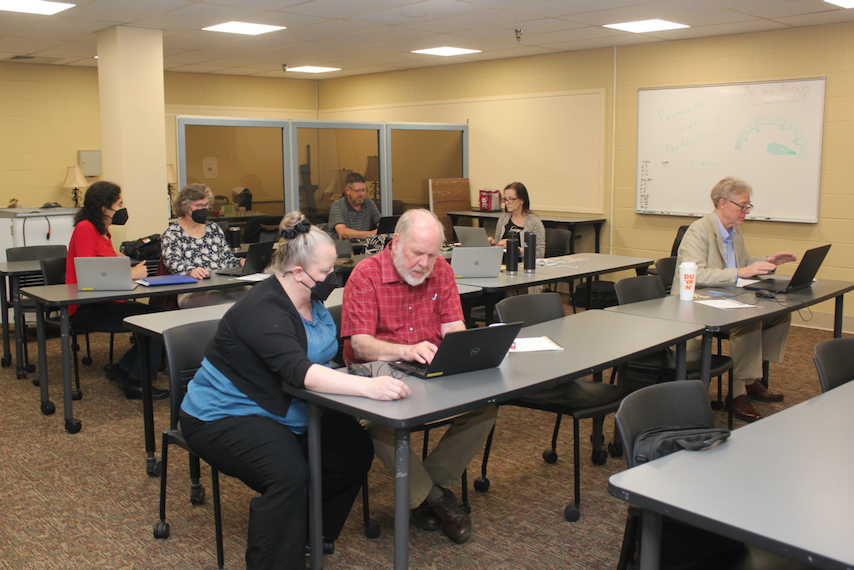
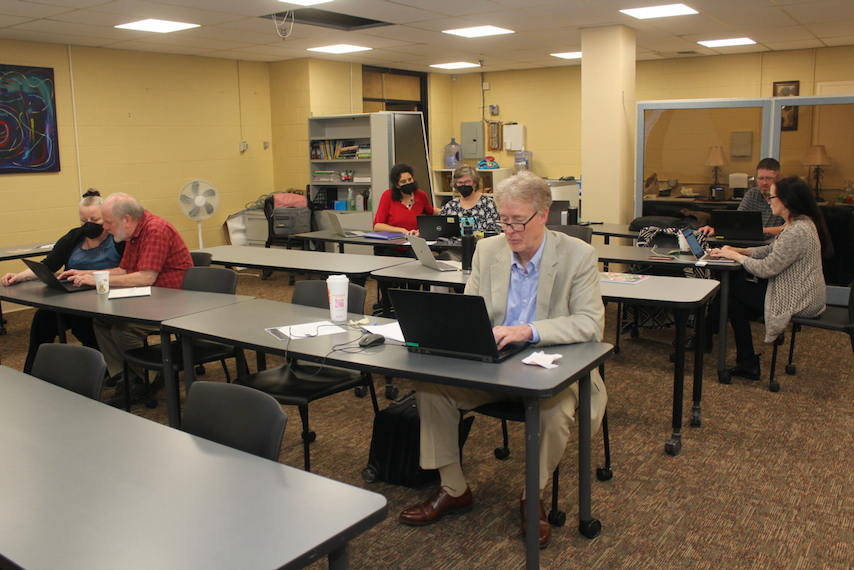
Ally gives students the ability to download audio, ePub, tagged PDF, and world language translations of course materials as alternative formats. Ally also checks course content for accessibility and gives faculty steps to self-assess and self-correct to improve course accessibility.
“I have many students for whom English is not their primary language, and that is a real issue,” Leonard added.
She said some of her students might not know how to take advantage of tools in Ally. “I feel better able to communicate some of those strategies to them now,” she said.
Professor Cindy Fuller, who teaches health science, said, “I’ve gotten some great information on how to increase the accessibility in my courses.”
Marks said there were 207 fixes when the day came to an end. STCC ranked 36 out of 173 registered intuitions based on fixes/student enrollment.
Scott Lambert, System Administrator of Online Learning, was on hand to offer technical assistance. He said he was available to help faculty by copying content from their spring or previous course into their fall course.
Mary Wiseman, Director of Instructional Innovation & Faculty Investment, said the team was happy to help faculty fix their content to make it accessible to all students.
Content should be accessible to students with visual impairments, either permanent or temporary, hearing issues, and visual issues.
“We want to content to be accessible to all students and equitable for all students,” Wiseman said. “We’re always striving to improve on that.”

